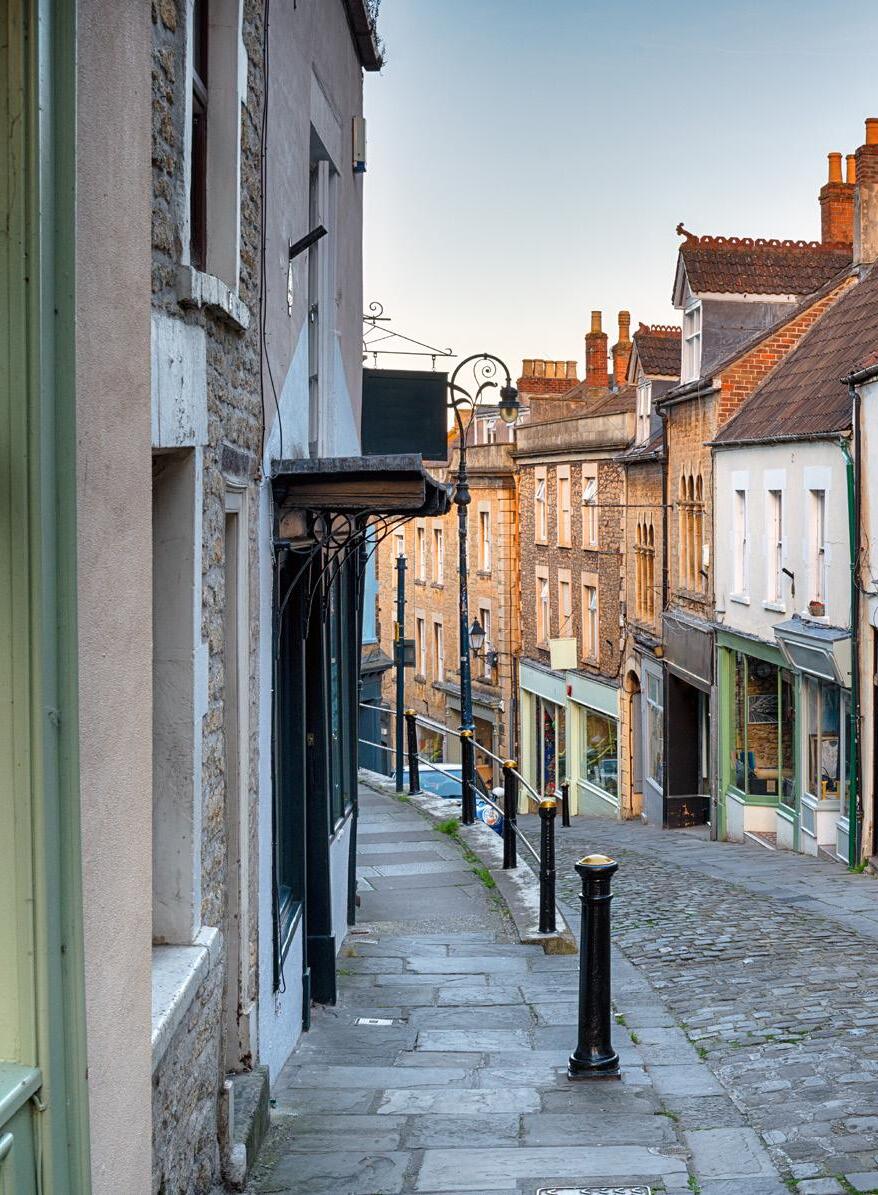Revive NI

A Programme for Local Government








Our members are entrepreneurs who provide an important service to their local communities and believe in real and genuine partnerships with their local Councils. They champion strong, vibrant and diverse town centres, which are in themselves, centres of both retail and hospitality excellence.

They want to see refocused, reinvigorated and resourced Local Councils that will be the changemakers helping to create 21st century high streets and be key partners in making Northern Ireland the very best place in these islands to locate, start and scale up a business.
Retail NI played a key role in both establishing the Northern Ireland High Street Taskforce and in the drafting of its final report. Full implementation of the 14 recommendations must be a top priority for a restored Executive.
The question that Retail NI members ask is how can we get local, regional and national governments all pushing in the one direction and more importantly, how all these policy priorities can be delivered so we can create 21st century high streets.


Alongside a dynamic retail and hospitality offering we also need to ensure our villages, towns and cities become multi-functional hubs with libraries, community services, police stations, healthcare, leisure, education, open spaces, housing and sports facilities.
The theme of this report is regeneration and how to create 21st century town and city centres. With the Local Government Elections in 2023, we believe it is time to update our policy priorities and introduce some new ideas for our eleven councils, their 462 Councillors, our 90 MLA’s and 18 MPs.
We look forward to engaging with members, stakeholders and political representatives across Northern Ireland in the months ahead, asking for their support to initiate the process of regenerating our high streets, regenerating our workforce, regenerating our infrastructure and regenerating our political structures.
A regeneration of ideas and approaches is as important as a regeneration of physical assets and resources.
We look forward to your feedback on our proposals.
About Us:
Retail NI represents independent retailers, wholesalers and suppliers to our sector. You can find our members in every village, town and city in Northern Ireland.

We are passionate champions of our local high streets and our amazing independent retailers.
But we are more than just that: We have members from every part of our supply chain and actively help local producers and service providers with their route to market and to grow their business.
Our team works across local, regional and national government to ensure our members voice is heard and we bring creative solutions to many problems facing our local economy.
Government at all levels must redouble their efforts to make town centres and high streets more sustainable to improve people’s health and wellbeing. This means changing the way that we live, work and move around them will be essential if we are to reach net zero by 2050.
What do we want to see:
The provision of more housing in town centres and increased variety of jobs and other amenities should encourage people to walk and cycle. This would help cut carbon emissions, improve air quality and help toward net zero. An academic research paper by Marseille et al (December 2020) on urban biodiversity suggests that parks and green spaces not only encourages people to exercise, but it also has a positive impact on their mental health.

The prioritising of social purpose in our high streets and the development of the ‘kindness economy’. Local Councils need to support the next generation of passionate independent retailers who will prioritise people and planet and therefore breathe new life into our empty spaces and derelict buildings. The increase in use of public transport.



The Councils should introduce and champion Carlos Moreno’s ”15 Minute City” concept building upon Ebenezer Howard’s “garden city” movement. These promote the benefits of mixed use and inclusive neighbourhoods. The central idea is that people should not have to walk, or cycle more than 15 minutes from their home to work, shop, or access education and healthcare.
Councils should use their planning powers to fast-track more town and city centre based residential schemes, to breathe new life into our high streets.
If the share of journeys made by public transport rose from one third to two thirds, then urban carbon emissions would halve. This would promote sustainable transport in all towns and cities which is essential to reaching net zero as well as giving people low-cost greener travel solutions.
Development of “Green Quarters” on our High Streets. Athens and Seattle are good examples of successful projects of “greening” high streets. Councils need a “Green High Street” strategy which will include more tree lined streets, living walls and urban gardens
All Councils must ensure that they improve mental health provision in their high streets. This includes safe talk training for all council staff, establishment of a Mental Health Champion at Director level and enhanced services for those with substance use issues. Establishment of a High Street Cleansing Taskforce. This will improve performance and enable the targeting hot spots and an increase the number of litter wardens to ensure effective enforcement.
This would include:
Retail NI wants the Northern Ireland Executive to bring forward an agreed ‘Local Government Devolution Bill’ to give our Councils the powers and responsibilities to be the game changers for their high streets.




The devolution of powers and funding for skills and employment support to councils, in partnership with higher education colleges. This would accompany the devolution of local economic development and regeneration, so that investment decisions could be based directly on what local economies and local businesses need in terms of future and present workforces to create jobs.
Councils in Northern Ireland should be given traffic management powers and responsibility for on-street car parking.

Responsibility for Regeneration and Neighbourhood services passed to Councils.
Many other cities and towns across the world have directly elected Mayors who give leadership and get things done. An independent study should be established to look how this could operate on a fair and impartial basis in Northern Ireland’s divided community.
Radical thinking must be injected into Northern Ireland’s policy-making process. Too many of our villages, our towns and cities are testament to a failure in regeneration policy to date. For the past 20 years, Northern Ireland has not only had the highest shop vacancy rate in the UK, but it has also nearly doubled that of the UK national average.
Instead of looking at the massive number of empty shops in our town centres as just derelict buildings, let us be ambitious and see them as the new retailers and small businesses of the future.
“The success of a high street depends on the economic strength of the city/ town centre it sits in and as such not all of them perform the same. In economically strong city centres, like London, Reading, or Milton Keynes, the presence of high-value, high-paid jobs creates a market for shops and restaurants to sell to – and the high streets are vibrant as a result.
The lesson here for local policymakers and planners is that the success of the high street cannot be approached in isolation from the other functions city/ town centres should serve, including, particularly, as places for work. Their role, therefore, is to create the right conditions to attract businesses to the areas around high streets, by ensuring the right provision of high-quality office space”.


All Councils to adopt a comprehensive Shop Vacancy Strategy. This should be put in place with targets and six-month progress reports. A dedicated Retail Champion to be appointed within each Council area. They would report directly to the Chief Executive and Director of Economic Development. The eleven Councils should put in place common Key Performance Indicators to measure the economic health of each of their town centres. The results should also be published on an annual basis.
Councils to establish Town Centre Retail Incubator Units in vacant shops to encourage start up retailers. This would provide affordable rents and marketing support for the first year.
 Valentine Quinio, Senior Analyst, Centre For Cities, August 2022
Valentine Quinio, Senior Analyst, Centre For Cities, August 2022
Town centre/high street plans must encompass an eco-system approach to town centre regeneration. It should incorporate health, housing, education, arts, entertainment, business/ office space, manufacturing and leisure, whilst developing daytime, evening and night-time cultures where shops are just a part of the total plan.
A strengthening of the ‘Town Centre First’ Retail Planning policy, underpinned by an immediate fiveyear moratorium on major out of town retail and mixed-use development. Government at all levels across Northern Ireland to accelerate the relocating of their administrative office space to town and city centres.
The establishment of more Business Improvement Districts (BIDs). We previously campaigned for, and supported, the introduction of BIDs in Northern Ireland. They have proven effective in Belfast and other towns, and we want to see many more established across Northern Ireland.
Having the most expensive and antiquated system of business rates is not just a burden on independent retailers and high streets-it is a dead hand on the entire Northern Ireland economy. It must be addressed immediately if we are to reach our full potential as a region.
While Councils do not set rating policy, they do strike the local rate and have an important voice for change in any future discussions with the Northern Ireland Executive.
A fundamental redesign of the business rates system, based on fairness and affordability.
A reformed Small Business Rate Relief Scheme which would directly provide independent retailers and hospitality with further discounts on their bills.

Better communications with local businesses. All Councils should put place effective measures to consult with local businesses before they strike their local rate.
A reform of the Rates Hardship Fund. This current fund decades out of date and needs urgent reform. Going forward it must include a much more flexible approach and include businesses that can demonstrate serious loss of revenue due to public realm, utility upgrades or other major disruption. The Department of Finance must exam ways to introduce an additional rate levy for large out-of-town retail premises. The proceeds would be ringfenced to support ratepayers in town centres (streetscape improvements, promotions, additional security measures etc.).
A Scale-up Rates Relief Scheme for six months. This would help any existing business who are scaling up create new jobs and investment in their high streets and local economy.

An FDI Rates Relief Investment scheme to be established to incentivise companies to locate and bring significant investment into economically disadvantaged areas, particularly west of the Bann. This could provide a rates holiday of one year, dependent on the scale of the investment, job creation and overall benefit to the local economy
A Green Rates Rebate Scheme to incentivise retailers who invest in energy efficiency and carbon neutral technology.



Contact:
245 Upper Newtownards Road / Ballyhackamore / Belfast / BT4 3JF

Voice: 028 9022 0004 / Message: info@retailni.com / Search: retailni.com


